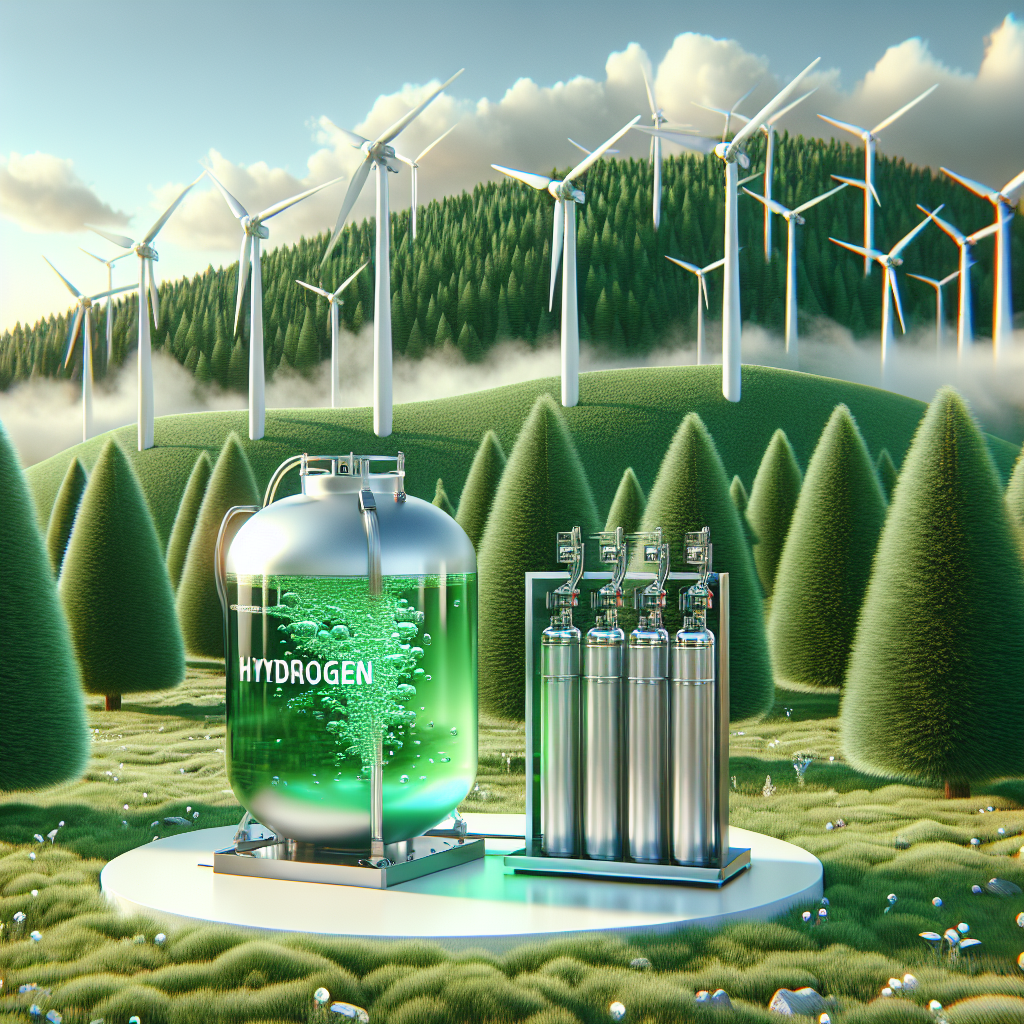The Potential of Hydrogen as a Sustainable Energy Storage Solution
In the quest for sustainable energy solutions, hydrogen stands out as a beacon of potential. As the world grapples with the escalating consequences of climate change, the transition towards cleaner energy sources has become imperative. Among the plethora of alternatives, hydrogen, particularly when used as an energy storage medium, presents a compelling case for several reasons. This article delves into the multifaceted advantages of hydrogen, its production, challenges, and the future it holds in the sustainable energy domain.
Understanding Hydrogen Energy Storage
Hydrogen energy storage involves the conversion of electricity into hydrogen using electrolysis. This process splits water into hydrogen and oxygen, with the hydrogen then being stored for later use. When needed, the stored hydrogen can be converted back into electricity through fuel cells or used directly as fuel in various applications. The allure of hydrogen as an energy storage solution lies in its high energy density, versatility, and the fact that its combustion only produces water, making it a clean energy carrier.
Advantages of Hydrogen as a Sustainable Energy Solution
High Energy Density
Hydrogen possesses a high energy density by weight, making it an efficient storage medium. This characteristic is particularly advantageous for applications requiring long-duration energy storage or high energy demands, such as in transportation and industrial processes.
Versatility
Hydrogen can be utilized across various sectors, including electricity generation, heating, transportation, and as a feedstock in industrial processes. This versatility enables hydrogen to play a significant role in decarbonizing a wide range of economic activities.
Clean Energy Carrier
The use of hydrogen as an energy carrier emits no greenhouse gases or pollutants if produced from renewable energy sources. This aspect is critical in the fight against climate change, making hydrogen a cornerstone in the transition to a sustainable energy future.
Hydrogen Production and the Path to Sustainability
The sustainability of hydrogen as an energy storage solution largely depends on the method of its production. Currently, the majority of hydrogen is produced using fossil fuels, a process known as grey hydrogen production, which undermines its environmental benefits. However, the focus is increasingly shifting towards green hydrogen, produced using renewable energy sources through water electrolysis. Although more expensive, the cost of green hydrogen is expected to decrease with technological advancements and increased renewable energy deployment.
Challenges Facing Hydrogen Energy Storage
Despite its potential, the widespread adoption of hydrogen energy storage faces several challenges. These include the high costs associated with green hydrogen production, the need for significant investments in infrastructure, and the development of efficient and safe hydrogen storage solutions. Additionally, public acceptance and regulatory frameworks need to evolve to facilitate the integration of hydrogen technologies into the existing energy system.
The Future of Hydrogen in Sustainable Energy
The future of hydrogen as a sustainable energy storage solution looks promising, driven by global efforts to reduce carbon emissions and the ongoing advancements in hydrogen technologies. Governments and industries worldwide are investing in hydrogen projects, recognizing its potential to complement renewable energy sources such as wind and solar power. As the technology matures and economies of scale are achieved, hydrogen is expected to become a more cost-competitive and integral part of the global energy landscape.
FAQs
Q: Is hydrogen energy storage safe?
A: Hydrogen is flammable and requires careful handling. However, with proper safety measures and technologies, hydrogen can be stored and used safely.
Q: How does hydrogen compare to batteries for energy storage?
A: Hydrogen is more suited for long-duration storage and high energy demand applications, whereas batteries are better for short-term storage and smaller scale applications. Both have their roles in a sustainable energy system.
Q: Can hydrogen be used in existing infrastructure?
A: Some existing infrastructure, such as gas pipelines, can be adapted for hydrogen. However, significant investment is needed to retrofit or build new infrastructure specifically for hydrogen transport and storage.
Q: What are the environmental impacts of hydrogen production?
A: The environmental impact depends on the method of hydrogen production. Green hydrogen, produced using renewable energy, has a minimal environmental footprint. Conversely, grey hydrogen, produced from fossil fuels, has a significant carbon footprint.
Q: How far are we from a hydrogen-powered future?
A: While significant progress has been made, a fully hydrogen-powered future is still several years away. Achieving this future requires continued investment in research and development, infrastructure, and policy support to make hydrogen a competitive and sustainable energy storage solution.
In conclusion, hydrogen holds considerable promise as a sustainable energy storage solution, capable of playing a pivotal role in the transition towards a cleaner, more sustainable energy future. Despite the challenges that lie ahead, the potential benefits of hydrogen in terms of energy density, versatility, and its role in decarbonizing various sectors make it an indispensable part of the global energy mix. As we move forward, the focus must remain on advancing green hydrogen production and developing the necessary infrastructure and technologies to unlock the full potential of hydrogen as a sustainable energy carrier.

